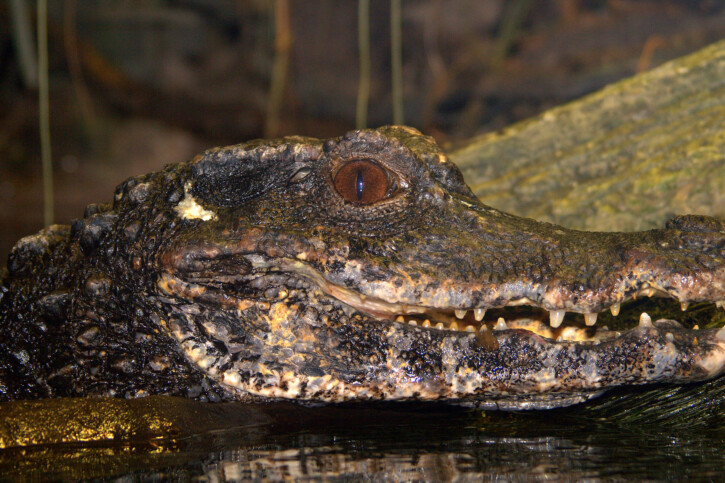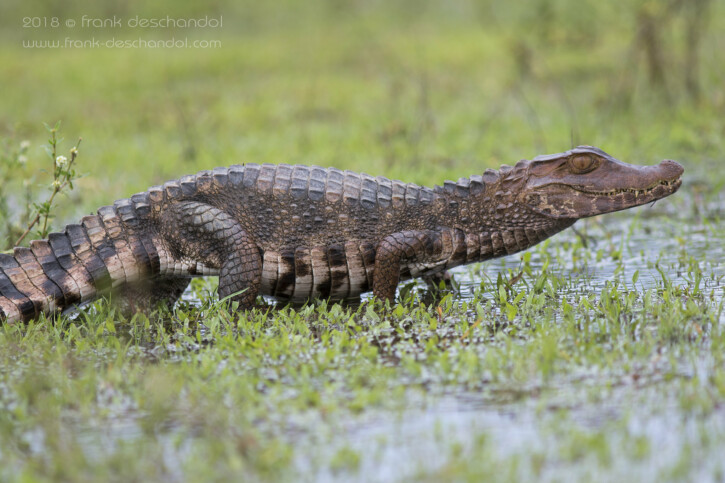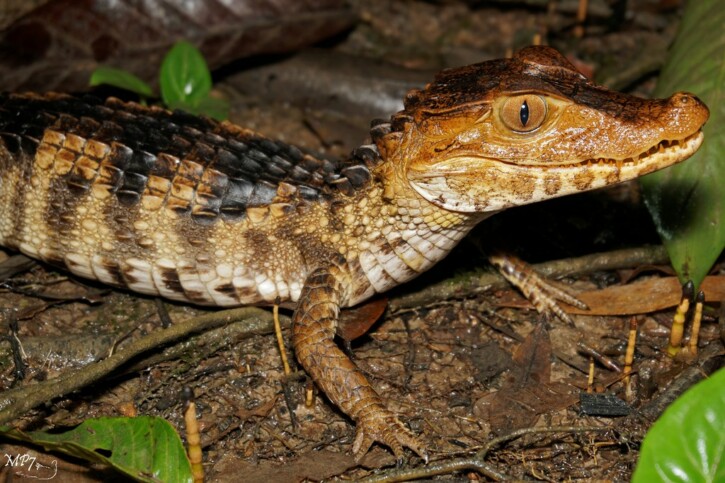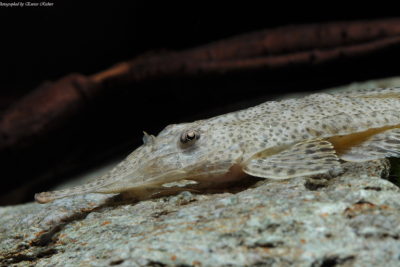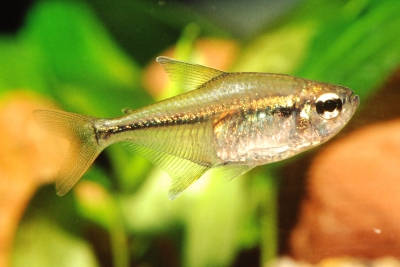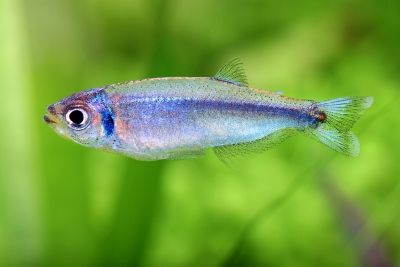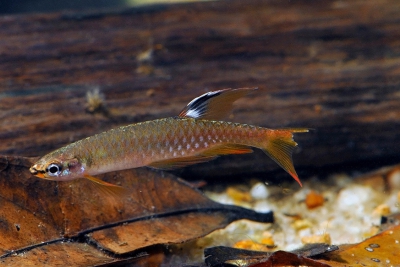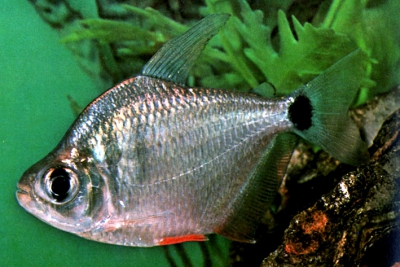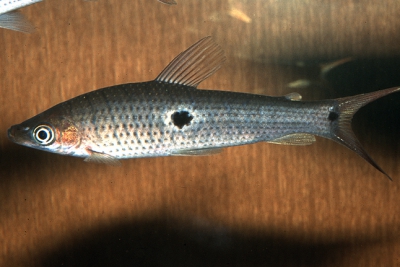dwarf caiman
| Scientific name | Paleosuchus palpebrosus |
|---|---|
| Descriptor | Cuvier |
| Year of description | 1807 |
| IUCN category (World) | LC |
| Family | Alligatoridae |
| Genus | Paleosuchus |
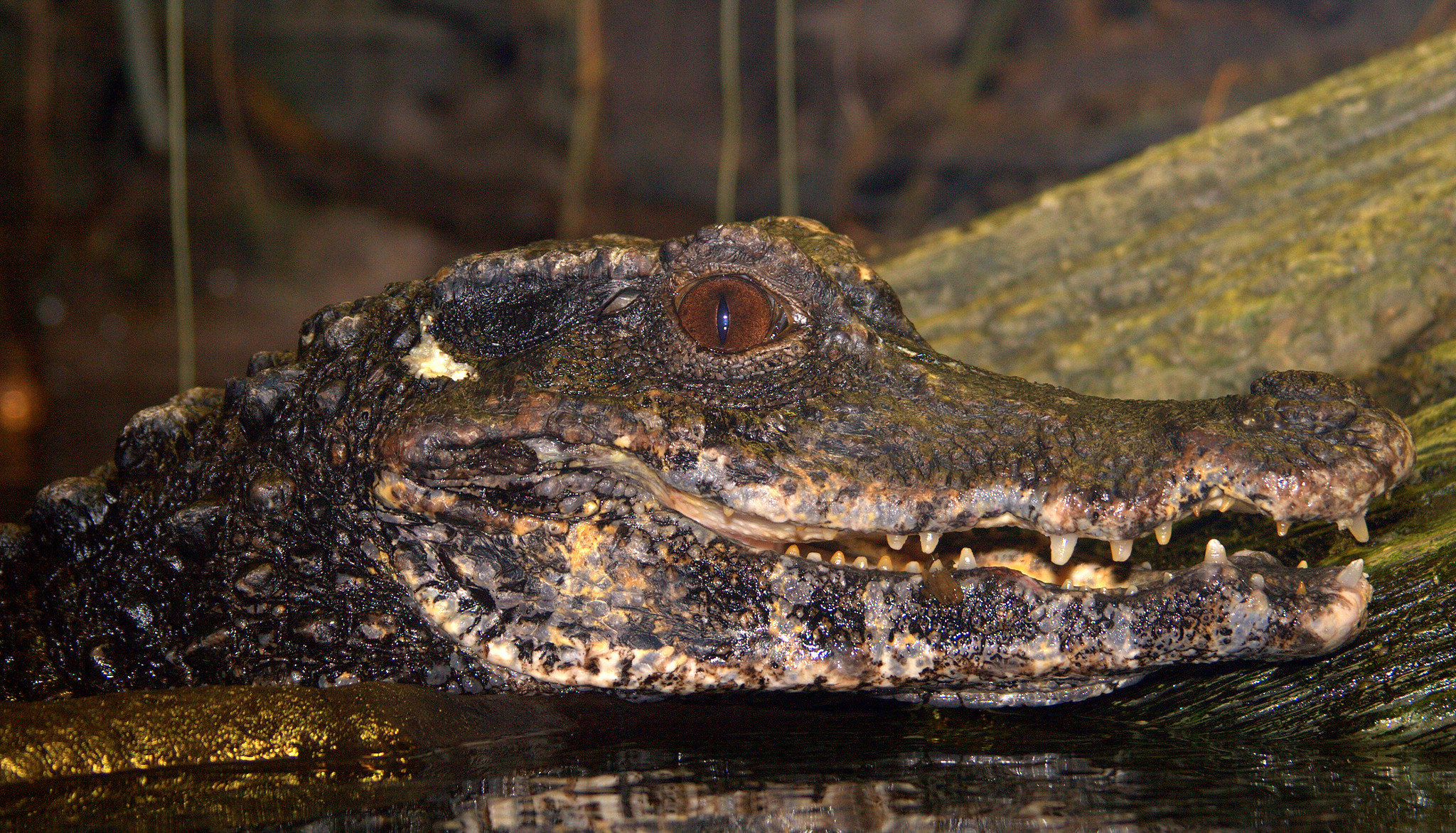

Introduction
The dwarf caiman, also known as the "Cuvier's dwarf caiman", "bony-eyed caiman", or "red caiman", is a crocodilian native to the wetlands of South America. It can be found from the Venezuelan llanos to the Pantanal in Bolivia. Its populations are still numerous in the Amazon and in several other basins, especially in Brazil where it is called the "Jacaré-anão". It is also present in the Guianas, including French Guiana.
Although it is the smallest crocodilian in the world, its size is often underestimated in the literature. Some individuals can reach over two meters in length in well-preserved areas. This species is only "dwarf" compared to its close cousins in the Americas that can measure up to six meters. Its smaller size and tough scales that are difficult to tan have allowed this species to partly escape the large-scale trade of crocodile skins. On land, this discreet predator camouflages itself under foliage while hunting stealthily during its aquatic outings.
Who is it?
Morphology
-
Female size120 - 140 cm
-
Male size170 - 200 cm
-
Weight7 - 10 kg
-
Longevity25 year
-
Female size120 - 140 cm
-
Male size170 - 200 cm
-
Weight7 - 10 kg
-
Longevity25 year
How to recognize This reptile ?
Slightly larger than the female, the male averages 1.7 meters in length. The female reaches 1.2 meters with an average weight of 7 kilograms.
As a juvenile, its body is covered in brown scales that darken with age.
Its snout is rather rectangular, topped by two brown eyes sometimes yellow/golden vertically slitted. It has a jaw marked with alternating dark and light spots.
It can have up to 82 teeth that continue to grow even into old age.
Sexual dimorphism
Generally, the male is larger than the female.
Behaviour & Life cycle
-
SociabilityThe following information corresponds to the mode of sociability once sexual maturity has been reached.living as a couple or alone
-
Way of livingnocturnal
-
VenomousNo
-
Dietpredator
Very discreet, and relatively unstudied in its natural environment, it is difficult to characterize its behavior. However, it is known not to attack humans.
During dry seasons, it may seek shaded areas, such as burrows, to prevent its body temperature from dropping below 22°C.
Reproduction
-
Reproductionovipare qui enfouit ses œufs
-
Clutch size10 - 25 eggs
The dwarf caiman reproduces sexually and is oviparous. It mates at the end of the dry season and builds a nest as a couple.
In their natural habitat, egg laying of ten to twenty eggs takes place at the end of the dry period and hatching at the beginning of the rainy season.
During the three-month incubation period, females stand guard and defend their offspring from predation. At hatching, groups of juveniles can form, sometimes accompanied by an adult female. During the first twelve months, the size of this group varies little, but younger caimans may join the group.
After a maximum of 21 months, individuals appear to live completely autonomously.
Harmless species
Too small to be deadly to humans, its bites can still be very painful.
Origin and distribution
Geographic distribution & Conservation
The Paleosuchus palpebrosus is found in the northern regions of South America, ranging from Venezuela to Paraguay, from Ecuador to the eastern tip of Brazil. It is widespread in the Amazon on almost all of Brazil.
Locally, the number of individuals can be high, however, lack of information on its census and human pressure (deforestation, gold mining, etc.) could lead to local extinctions.
Conservation status of populations (IUCN)
What is its habitat?
Natural environment characteristics
-
Temperature23 - 28 °C
-
pH (acidity)7.8 - 8.8
-
gh (hardness)15 - 25
-
FlowAll type
Biotope presentation
The dwarf caiman adapts to various aquatic biotopes. It can be found in flooded forests in the Amazon, near lakes and rivers both calm and fast-flowing.
Species of the same biotope
To go further
Sources & Contributions
Participation & Validation
The Fishipedia team and specialist contributors are committed to providing high-quality content. However, although the information comes from scientific sources or testimonials from specialists, the cards may contain inaccuracies.

Marc Raggi

Benoit Chartrer

Nans Gourgousse
Translation
Translation done with the valuable contribution of our translators, who make this information available to a wider audience. We sincerely thank them for their commitment.
Scientific partners
Tags
Species of the same biotope
